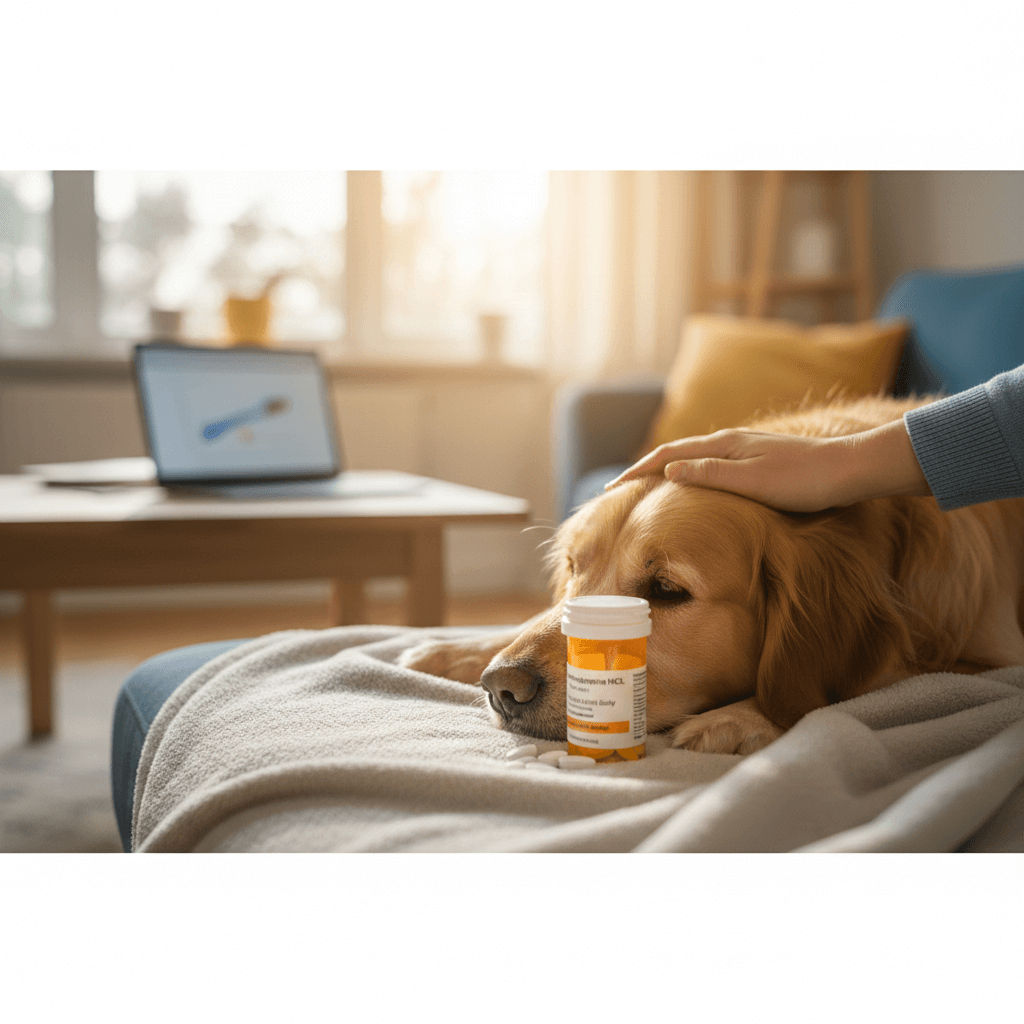Can Dogs Eat Dextrose?
Dextrose, a simple sugar derived from corn or other plant sources, is commonly used in human food and medical treatments. But what about dogs? Can our canine companions safely consume dextrose, or does it pose risks to their health? While dextrose is sometimes used in veterinary care for specific purposes, it’s essential to understand its effects on dogs before offering it as part of their diet. In this blog post, we’ll explore the safety, benefits, and potential dangers of dextrose for dogs, along with expert tips to ensure your furry friend stays healthy and happy.
Potential Benefits of Dextrose for Dogs
When used appropriately, dextrose can offer certain benefits for dogs, particularly in medical or emergency situations. Here’s how dextrose might be helpful under the right circumstances.
Quick Energy Boost:
Dextrose is rapidly absorbed into the bloodstream, making it an effective way to provide an immediate energy source for dogs experiencing fatigue or weakness.Treatment for Hypoglycemia:
Veterinarians often use dextrose solutions to treat hypoglycemia (low blood sugar) in dogs, especially in small breeds or puppies prone to this condition.Post-Surgery Recovery:
After surgery or during illness, dextrose can help stabilize blood sugar levels and support recovery when appetite is low.Rehydration Solutions:
Dextrose is sometimes included in electrolyte solutions to aid hydration in dehydrated dogs, ensuring they regain strength quickly.Diabetic Management (Under Supervision):
In rare cases, veterinarians may use dextrose to counteract insulin overdoses in diabetic dogs, stabilizing their condition temporarily.
While these benefits exist, dextrose should only be administered under veterinary guidance to avoid complications.
Risks of Feeding Dextrose to Dogs
Despite its potential benefits, feeding dextrose to dogs without proper knowledge can lead to significant health risks. Understanding these dangers is crucial for responsible pet ownership.
Blood Sugar Spikes:
Excessive dextrose consumption can cause sudden spikes in blood sugar levels, which may harm non-diabetic dogs or exacerbate diabetes in affected animals.Weight Gain and Obesity:
As a form of sugar, dextrose contributes to calorie intake, potentially leading to unhealthy weight gain if given frequently.Digestive Upset:
Some dogs may experience diarrhea, vomiting, or bloating after consuming sugary substances like dextrose.Risk of Insulin Resistance:
Regular exposure to high-sugar foods can increase the risk of insulin resistance, a precursor to diabetes in dogs.Allergic Reactions (Rare):
Though uncommon, some dogs may have sensitivities or allergic responses to dextrose-containing products.
These risks highlight why moderation and professional advice are critical when considering dextrose for your dog.
Check this guide 👉Can Dogs Eat Pig Skin? Best 7 Expert Tips!
Check this guide 👉Can Dogs Eat Mealworms? Best 7 Expert Tips!
Check this guide 👉Can Dogs Eat Sea Moss? Best 7 Expert Tips!

Safe Uses of Dextrose for Dogs | Unsafe Practices with Dextrose |
|---|---|
Administered by vets for hypoglycemia | Giving dextrose without veterinary approval |
Used in controlled amounts for energy | Feeding large doses at once |
Included in IV fluids for dehydration | Using dextrose as a regular treat |
Temporary solution for insulin overdose | Mixing dextrose with toxic ingredients |
Part of specialized diets (rare cases) | Offering sugary snacks meant for humans |
How to Safely Introduce Dextrose to Your Dog
If you believe dextrose could benefit your dog, it’s important to proceed cautiously and follow these guidelines to minimize risks.
Consult Your Veterinarian First:
Always seek professional advice before introducing dextrose, especially if your dog has underlying health conditions.Use Only Vet-Approved Products:
Avoid using over-the-counter dextrose supplements unless specifically recommended by your vet.Monitor Blood Sugar Levels:
If your dog requires dextrose, regularly check their blood sugar to prevent imbalances.Administer in Small Doses:
Start with minimal amounts and observe how your dog reacts before increasing the quantity.Avoid Long-Term Use:
Dextrose should not be a dietary staple; reserve it for emergencies or short-term needs.
By following these steps, you can ensure that dextrose is used safely and effectively for your dog’s well-being.
Signs Your Dog May Be Sensitive to Dextrose
Even in small amounts, some dogs may exhibit adverse reactions to dextrose. Watch for these warning signs to act promptly if something goes wrong.
Excessive Thirst and Urination:
These symptoms may indicate elevated blood sugar levels, requiring immediate attention.Lethargy or Weakness:
A sudden drop or spike in blood sugar can leave your dog feeling unusually tired or weak.Vomiting or Diarrhea:
Digestive upset is a common reaction to excessive sugar intake, including dextrose.Seizures or Tremors:
Severe fluctuations in blood sugar can trigger neurological symptoms like seizures or tremors.Loss of Appetite:
If your dog refuses food after consuming dextrose, it could signal discomfort or illness.
Recognizing these signs early allows you to consult your vet and address any issues promptly.
Common Mistakes to Avoid When Using Dextrose for Dogs
Using dextrose without proper knowledge can lead to unintended consequences. Here are some common mistakes to avoid for your dog’s safety.
Giving Human Foods Containing Dextrose:
Many processed snacks contain dextrose and other harmful additives that can harm your dog.Ignoring Veterinary Advice:
Self-administering dextrose without professional guidance can worsen existing health conditions.Using Dextrose as a Reward:
Sugary treats like dextrose should never replace healthier reward options for training or affection.Overlooking Underlying Conditions:
Administering dextrose without addressing root causes of symptoms (e.g., diabetes) can mask serious issues.Failing to Monitor Reactions:
Not observing your dog’s response to dextrose can delay identifying adverse effects or complications.
Avoiding these errors ensures your dog remains safe and healthy.
Healthier Alternatives to Dextrose for Dogs
If you’re looking for ways to boost your dog’s energy or manage their diet, consider these safer alternatives to dextrose.
Lean Proteins:
Chicken, turkey, or beef provide sustained energy without the risks associated with sugar.Complex Carbohydrates:
Sweet potatoes and brown rice offer slow-release energy and essential nutrients.Hydration Solutions:
Electrolyte drinks formulated for dogs can rehydrate without relying on sugary components like dextrose.Natural Treats:
Fruits like blueberries or apples (in moderation) serve as healthy, low-calorie snacks.Balanced Commercial Diets:
High-quality kibble tailored to your dog’s age, size, and activity level ensures proper nutrition without added sugars.
These alternatives provide safer ways to meet your dog’s dietary and energy needs.
Understanding Your Dog’s Nutritional Needs
Every dog has unique nutritional requirements based on factors like breed, age, and activity level. Understanding these needs helps you make informed decisions about their diet.
Puppies Require More Calories:
Growing dogs need higher energy intake but should avoid sugary substances like dextrose to prevent health issues.Senior Dogs Need Balanced Diets:
Older dogs benefit from diets rich in protein and fiber while avoiding unnecessary sugars that strain their metabolism.Active Dogs Thrive on Protein-Rich Foods:
Working or athletic dogs require nutrient-dense meals rather than quick fixes like dextrose for sustained performance.Small Breeds Are Prone to Hypoglycemia:
Toy breeds may occasionally need dextrose under vet supervision due to their susceptibility to low blood sugar.Large Breeds Benefit from Joint Support:
Instead of sugary supplements, focus on glucosamine-rich foods to support joint health in larger breeds.
Tailoring your dog’s diet to their individual needs ensures optimal health and longevity.
Frequently Asked Questions About Dogs and Dextrose
Is dextrose safe for all dogs?
No, dextrose should only be given under veterinary supervision, especially for diabetic or overweight dogs.
Can I give my dog dextrose syrup?
Avoid giving human-grade dextrose syrup unless explicitly instructed by your vet.
What happens if my dog eats too much dextrose?
Overconsumption can lead to blood sugar spikes, digestive upset, or even life-threatening complications.
Are there alternatives to dextrose for energy?
Yes, natural options like lean proteins or complex carbohydrates are safer for sustained energy.
How do I know if my dog needs dextrose?
Symptoms like weakness, collapse, or seizures may indicate hypoglycemia, requiring immediate veterinary intervention.
Prioritizing Your Dog’s Health When Considering Dextrose
While dextrose can be beneficial in specific scenarios, it’s not a substance to take lightly when it comes to your dog’s diet or health. Its rapid effects on blood sugar levels demand caution and professional oversight to ensure your pet’s safety. By understanding the risks and benefits, consulting your veterinarian, and monitoring your dog closely, you can make smart choices that prioritize their well-being. Remember, your dog relies on you to provide safe and nutritious care—so always err on the side of caution when introducing new substances like dextrose.
How Cats Develop Lymphoma: Best 7 Expert Tips! – Learn about causes, symptoms, and prevention to protect your cat from this common cancer.
How Dogs Develop Lymphoma: Best 7 Expert Tips! – Learn causes, symptoms, and prevention strategies to protect your dog from this common cancer.
Diphenhydramine Safe for Dogs? Best 7 Expert Tips! – Learn proper dosing, uses, and precautions to keep your dog safe while using Benadryl.
Is Milk in Cat Food Safe? Best 7 Expert Tips! – Discover the truth about milk in cat food, its risks, and how to keep your feline healthy and happy.




